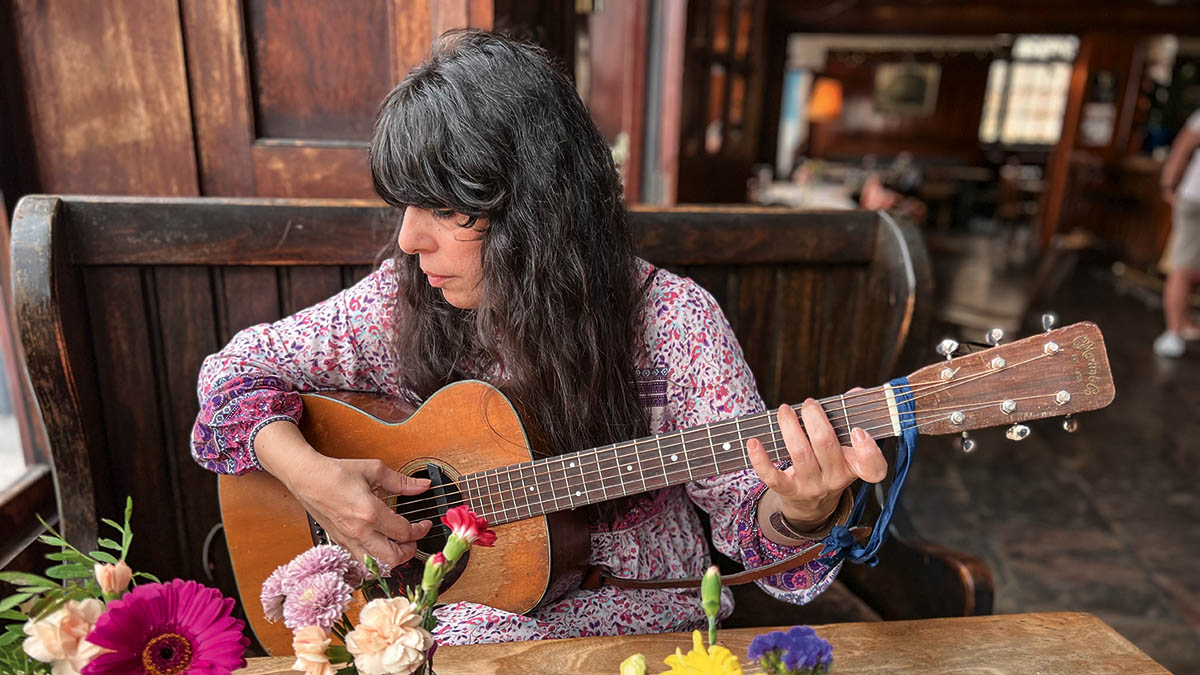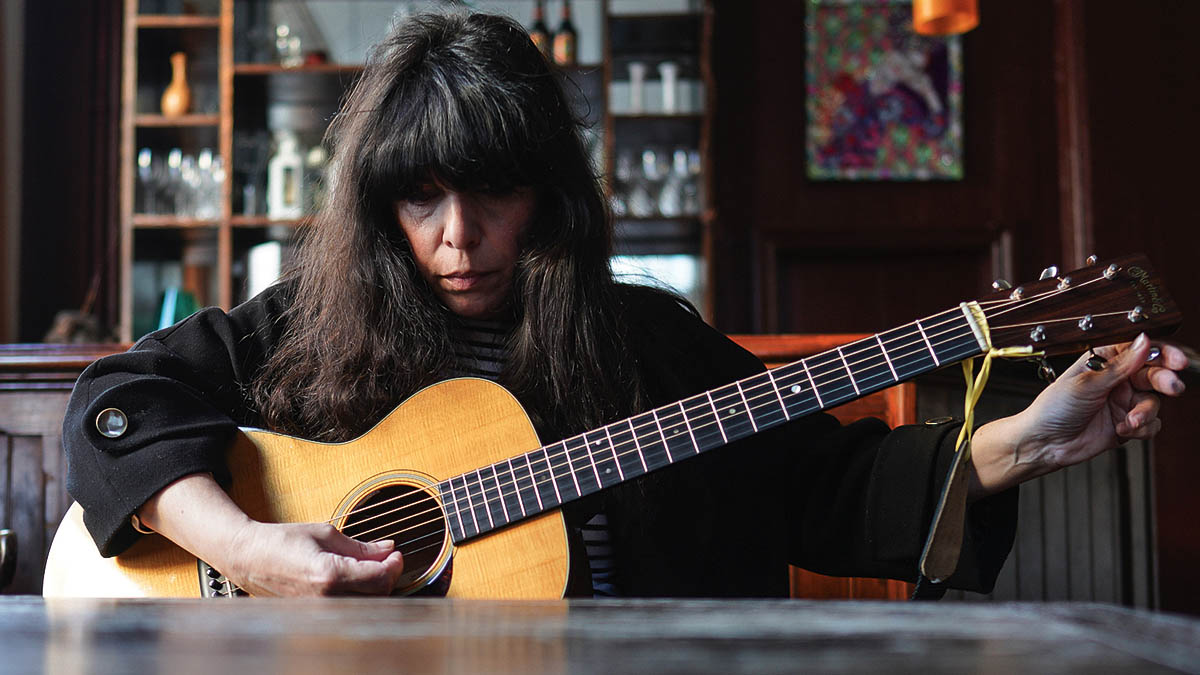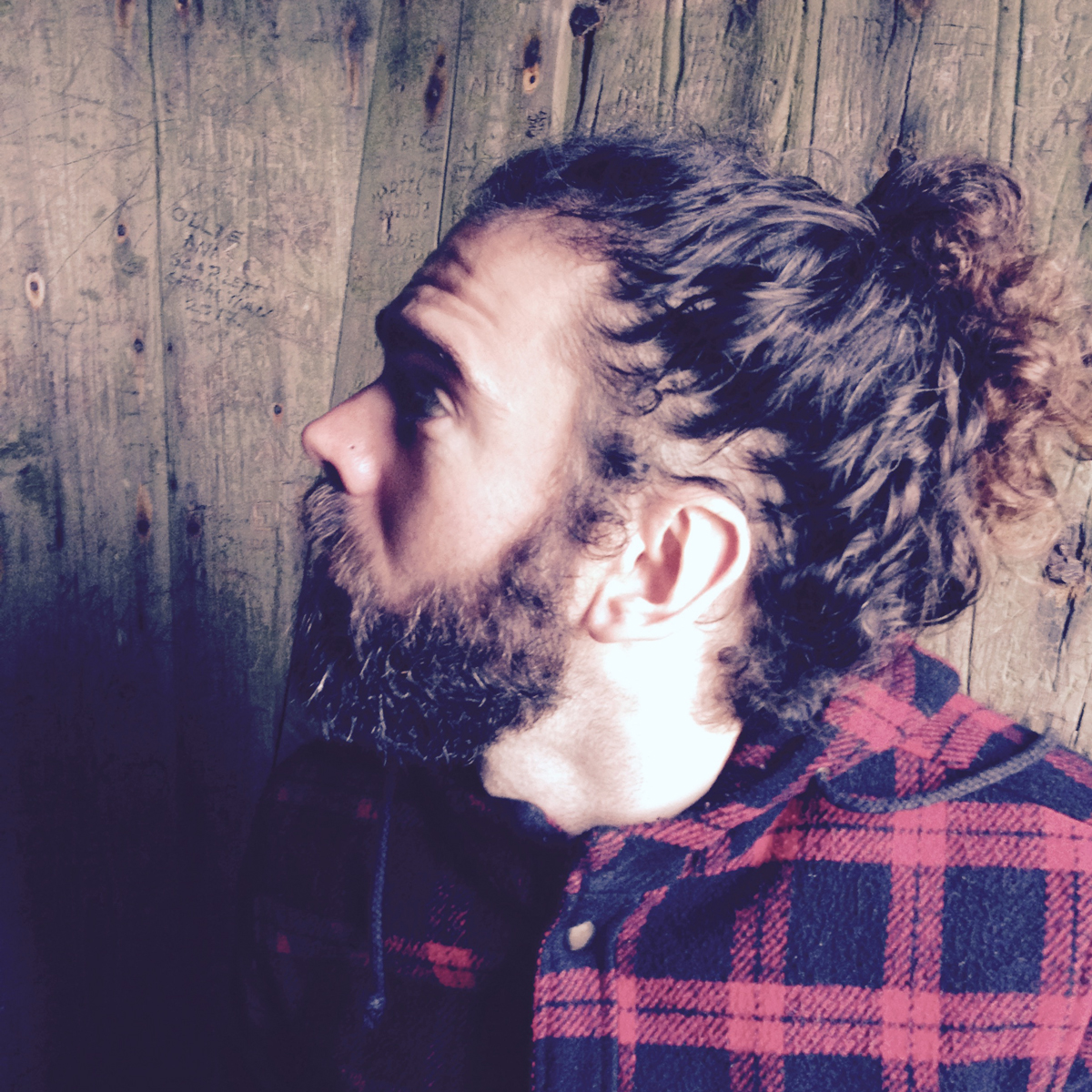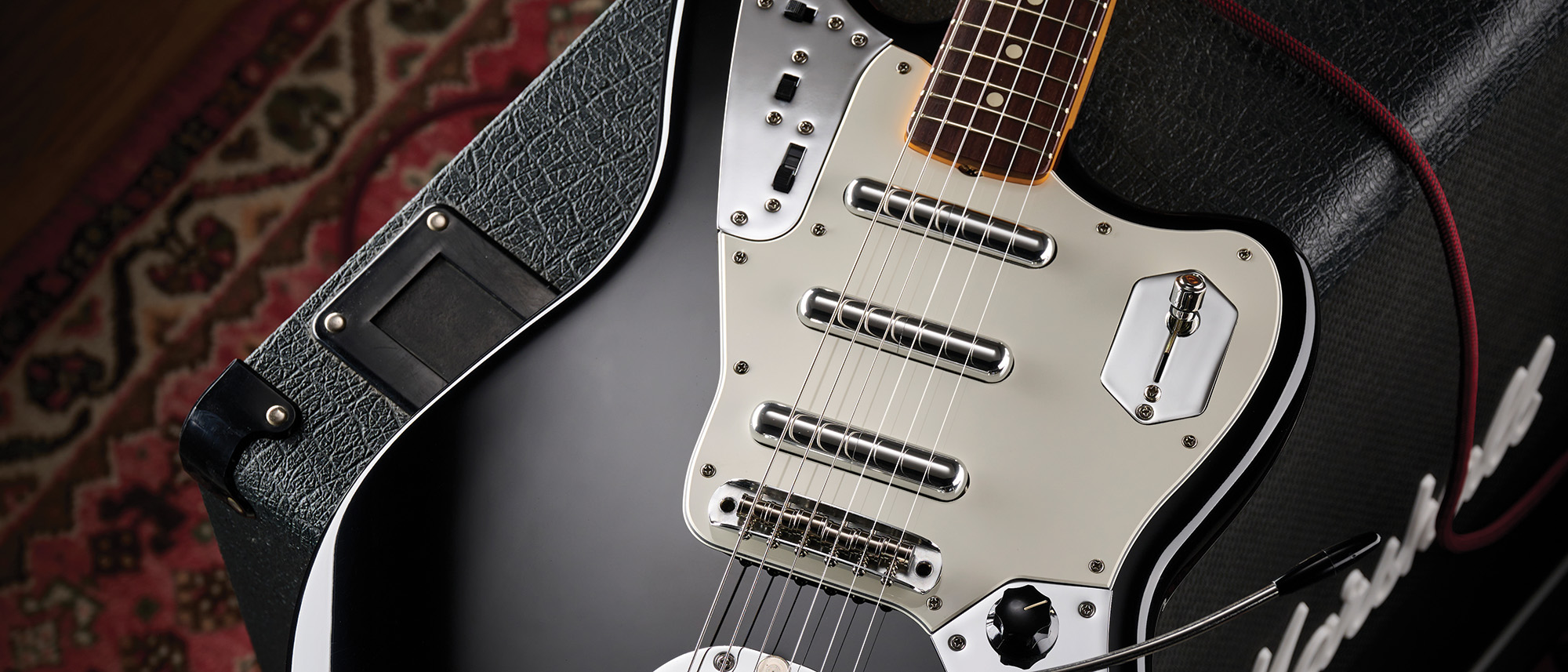“We wanted to make something that was atmospheric and not mimicking anything else. But, really, this record is about coming out of grief”: Emma Tricca is finding redemption in vintage Martins and fingerstyle folk
Her guitar approach may be shaped by Joan Baez, Bob Dylan and John Renbourn, but Aspirin Sun finds Emma Tricca chasing a folk sound that's all her own

All the latest guitar news, interviews, lessons, reviews, deals and more, direct to your inbox!
You are now subscribed
Your newsletter sign-up was successful
Rome-raised and London-based Emma Tricca is something of an adventurer, both in life and her art. Her music is rich and textured, and unafraid to challenge standard tropes, while remaining solidly in that singer-songwriter bracket.
It feels like she could have applied her colourful approach to any art form. “I don’t think I chose music, I think it chose me,” she begins.
“I was on tour with Robyn Hitchcock and he asked me how I got into music, and fingerpicking specifically, and I remember talking about a magazine I saw when I was five years old with Joan Baez and Bob Dylan on the cover. I remember thinking that this was what I was going to do.”
The other side of grief
Emma’s newest album, Aspirin Sun, is her boldest and most personal work yet, a rich and engulfing record of many layers, that is careful to sound uncluttered.
“We wanted to make something that was atmospheric and not mimicking anything else,” she explains. “We also wanted to do something simpler, but Steve [Shelley’s, drummer] playing is multi-layered, and when Jason [Victor, guitars] comes in he sprinkles on the magic, as does Pete [Galub, bass].
“But, really, this record is about coming out of grief [Emma’s father died shortly after the release of her previous album, St Peter, in 2018], so I went over to New York because I wanted to start working on these feelings.”
Time for ideas
The Aspirin Sun sessions in New York ended just as Covid hit, meaning a shift in lifestyle for Emma and more time to hone the 10 tracks she brought back to London.
All the latest guitar news, interviews, lessons, reviews, deals and more, direct to your inbox!
“I was sitting at home with these pockets of time where I could go to the studio to start working on bouncing ideas off of the guys,” she says. It was a transatlantic process, with Jason writing brass parts on synths from New York and [keyboardist] Sean Read playing them in London.
“I sing well with Sean,” Emma says, “so we also recorded harmonies together and it was fun. But, really, it was all part of coming back out again.”

Writing on the move
Emma’s creative process can be chaotic, she admits, and is often fed by travel and locations. “Movement certainly does it for me,” she nods. “Minor White [Emma’s debut album] was completely written between airports. I’m scatty, I keep notes but not a diary or anything.
“I would get obsessed with a melody or chorus and I’d have it in my head and then frantically write the song with that melody in my head, waiting to board a plane! This record has been less like that because all of the songs have come from being in New York, which is where I’m most comfortable writing now.”
Trio of treasures
Emma is passionate about her guitar playing, being a keen fingerpicker, and her instruments of choice reflect this love.
“This guitar is quite a new one,” she says, reaching behind her for a shiny Martin 00-18. “It’s from 2016 and it’s amazing, but I have a 1960 00-18 that I keep under lock and key now. I got this one because I wanted something to take on the road that was similar to the 1960 one.
“I also have this 1929 Martin parlour. I’ve just discovered a little dent and it needs new strings, but it’s amazing. But I’m a little bit of a punk, so I have a pickup in it because you have to use them. Look at how beautiful she is!”
John Renbourn’s impact on Emma’s music
Fingerstyle guitar is key to Emma’s music and life, but one important player had a significant effect on her career.
“I went to see John Renbourn one time at a folk club in Rome and was at the aftershow party,” she tells us.
“We were all a bit drunk and I picked up the guitar in front of Mr Renbourn and he made lovely remarks, which led to me getting a show. I stayed in touch with John and we played some shows together. We were going to do some music together before he passed away. He was incredibly supportive and a good friend and I miss him.”
- Aspirin Sun is out now via Bella Union.
Glenn Kimpton is a freelance writer based in the west of England. His interest in English folk music came through players like Chris Wood and Martin Carthy, who also steered him towards alternate guitar tunings. From there, the solo acoustic instrumental genre, sometimes called American Primitive, became more important, with guitarists like Jack Rose, Glenn Jones and Robbie Basho eventually giving way to more contemporary players like William Tyler and Nick Jonah Davis. Most recently, Glenn has focused on a more improvised and experimental side to solo acoustic playing, both through his writing and his own music, with players like Bill Orcutt and Tashi Dorji being particularly significant.

